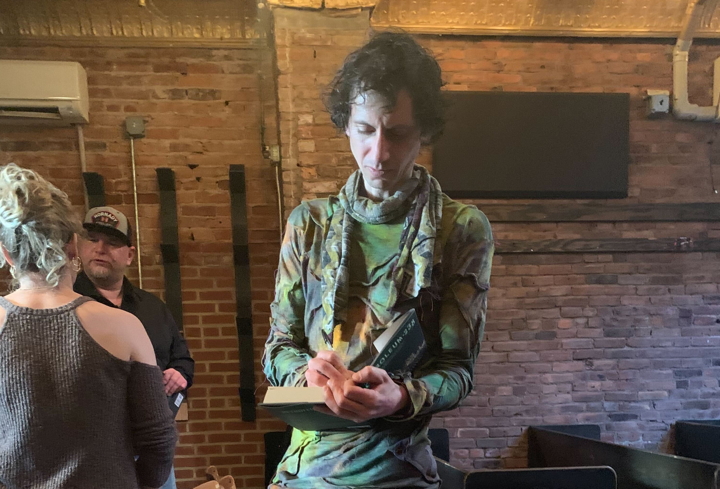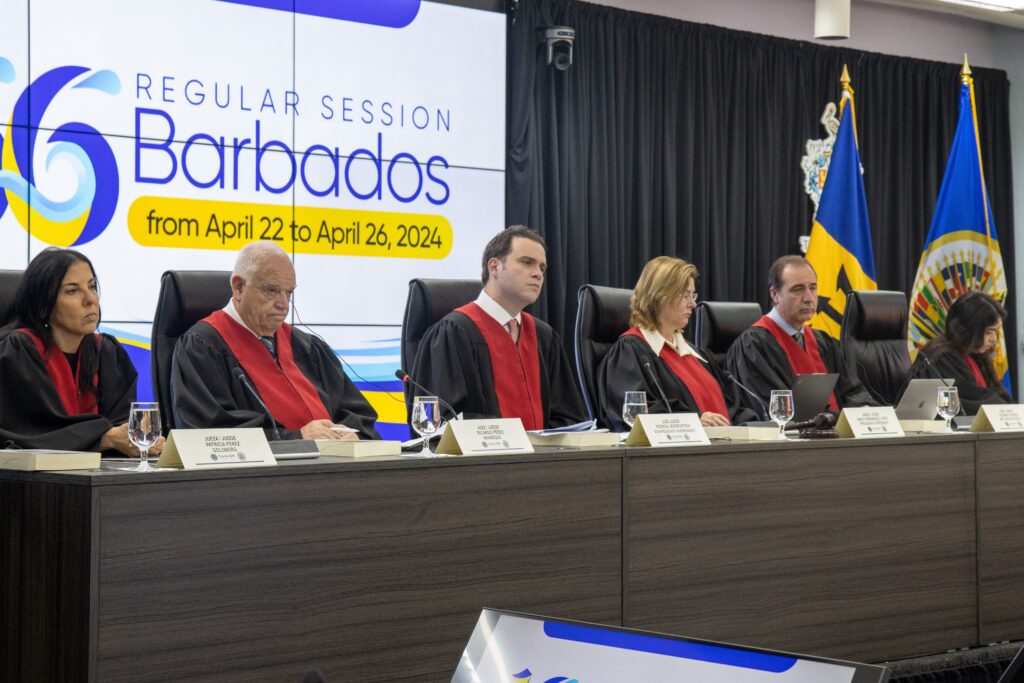At an industry conference in Philadelphia last month, oil and gas executives gathered to hear about a little-known public relations effort with a very precise target: newly hired state and federal environmental inspectors.
At a seminar titled “Staying Ahead of Federal and State Regulations: A Partnership with Academia and Government,” officials from Pennsylvania State University and the University of Texas described how gifts from companies like ExxonMobil allowed their universities, along with the Colorado School of Mines, to offer state regulators free classes on oil industry best practices, travel and accommodations included.
“We’re targeting inspectors – oil and gas inspectors – who have three years or less of experience, although we do have lots of inspectors with different experiences on the course,” Dr. Hilary Olson, director of Education, Training and Outreach at the College of Petroleum and Geosystems Engineering at the University of Texas told attendees at Shale Insight 2015.
The program showcases the industry’s technical prowess as it conveys detailed information about the science involved in oil and gas drilling and fracking. “We don’t teach them about regulations specific to their state or talk to them about policy; what we’re interested in teaching them is the engineering, the science, the technology and how to communicate about that technology,” Dr. Olson explained.
The five-day TopCorp course includes both time in the classroom and visits to working oil and gas sites, taught by professors from many disciplines. Sample lesson footage reveals an online course featuring slick CGI graphics as professors lecture on topic ranging from basic principles of geology to complex technological advances that the industry has made in recent years.
All three universities involved have made national headlines in the past for their “frackademia” scandals.
In 2009, a Pennsylvania State University study, which claimed Pennsylvania alone could create 175,000 jobs by promoting fracking in the state, made headlines because the study’s lead author, Timothy Considine, had concealed the fact that the research was funded by the shale industry.
In 2009, questions of academic freedom were raised at the Colorado School of Mines when Prof. Geoffrey Thyne said his job was threatened after he made comments that the fracking industry found objectionable (the school’s president serves as a director of a number of shale-industry companies).
And in 2012, the University of Texas found itself in hot water after the lead investigator in a study disclaiming a connection between fracking and groundwater contamination was forced to resign and had the paper retracted by the university because he failed to disclose that he sat on the board of directors of a company engaged in fracking.
In this case, the universities involved are upfront about the fact that TopCorp is company-funded. “So these different organizations gave us gifts to develop this program,” Dr. Olson explained. “When a university receives a gift, it means there are no specific deliverables, so we maintain our autonomy and our independence on what material goes into the curriculum and how we deliver that.”
But scientific research funded by companies tends to slant favorably towards the funder, experts say.
“[E]ven though the vast majority of scientists would never consciously allow the potential for personal financial gain or loss to influence the outcome of their research, that potential should be disclosed to the reader so that the readers can decide for themselves whether to discount the reported results,” University of Texas law professor Thomas O. McGarity told The New York Times in the wake of the frackademia scandal at that university. “In that regard, dozens of studies have shown strong correlations between sponsored research and favorable outcomes for the sponsors.”
The TopCorp curriculum seems to anticipate that there could be an appearance of unseemliness. “Discuss ways to react to accusations of alleged regulatory coziness” is one learning objective in a sample class module posted on TopCorp’s website.
Generally speaking, scandals surrounding “frackademia” have centered on cases where new research is financially connected to the fracking industry, but those ties are concealed. Last week, a Boulder Weekly investigation, built from documents and emails obtained by Greenpeace, revealed that a University of Colorado Boulder paper was not just funded by the American Petroleum Institute, but also that API was allowed to edit the report and to write up quotes attributed to a researcher at the school.
The TopCorp program represents an entirely different tack. Instead of funding research showing fracking to be benign, the TopCorp program communicates directly with the field personnel responsible for policing the industry, helping to shape their understanding of complex – and controversial – topics like whether and how drilling and fracking can cause groundwater contamination. And while the shale industry has for years taken an aggressive approach to beating back regulators, this new program adopts a more collegial tone.
Of course, state regulators who are aware of the program’s funding can be expected to take the industry’s “educational” programs with a grain of salt. But TopCorp reps told Shale Insight attendees that many regulators who start out with doubts can be won over.
“It was almost a conversion experience,” said Pennsylvania State University’s Jim Ladlee, describing how one skeptical government official changed her views on the course after attending. “And that’s what happens with many of our regulators. They come into the class, they’re slightly skeptical of what might be going on in the class. But after we start, we involve somewhere between 15 and 20 different faculty for each of the sessions that we do. We involve a lot of faculty. And as we do that, we start to see that people begin to trust what it is.”
At the Shale Insight conference, the ability of academics to gain trust was emphasized repeatedly.
“You know, when you look at a lot of surveys of whom the public trusts to give them information, many times, academia is at the top of that list,” Dr. Olson told the gathered oil executives.
A long list of oil and gas companies, including Anadarko, Shell Appalachia, and Halliburton, have provided resources to TopCorp and even made areas of drilling sites that are usually off-limits to visitors accessible for the program’s photographers and videographers.
“Exxon Mobil and GE were the founding sponsors of our program and they helped us really spectacularly in the development phase,” Dr. Olson explained.
While oil and gas companies have contributed millions of dollars to TopCorp, which Olson described as a “Cadillac version” experience, a contribution from the Environmental Defense Fund of $125,000, announced July 16th, allows program administrators to describe TopCorp as a collaboration between environmental groups, industry and academia.
“Oil and gas inspectors need to be prepared to meet the challenges presented by the complexity and scale of industry operations,” Scott Anderson, senior policy director for EDF, said in a TopCorp press release when that funding was announced. “Effective training will equip inspectors to enforce the regulations that protect our environment. That’s why programs like TOPCORP are so important.”
The program disclaims the idea that the oil and gas industry decides what goes into the course or how it is taught.
“What role do funding corporations or other entities have in setting the detailed curriculum content?,” a Frequently Asked Questions section on TopCorp’s website says. “None, the detailed curriculum is at the sole discretion of the three universities (principal investigators and instructors).”
As the shale rush swept across the U.S. into areas with little recent history of oil booms, often-underfunded and under-staffed state regulators have repeatedly been forced to scramble to learn to police a highly complex industry with vast resources.
So far, TopCorp been very successful at attracting newly hired regulators from across the country.
“We’ve had people from different state agencies, we’ve had young people who have 18 months of experience, maybe 6 months of experience. We’ve had people go through who have several decades of experience with us,” Dr. Olson explained. “We’ve had people go through from state agencies as well as from federal agencies like the Environmental Protection Agency or the Bureau of Land Management.”
“We also invite our sponsors to come to our training so that they can see what we are doing,” she added.
The reception from many new inspectors has been enthusiastic, according to teasers for the classes posted on TopCorp’s website.
“I feel like I’ve got a little bit more of an educated opinion, and I know my colleagues will benefit from what we’ve learned here,” one attendee says in a promotional video for the program.
At the Shale Insight luncheon, TopCorp officials touted their ability to promote a friendly connection between the industry and those charged with policing it.
“The other thing I’d like to say is – they’re all smiling,” Mr. Ladlee said as he showed pictures of attendees at a recent TopCorp training. “So, great to see regulators smiling for a change.”
Subscribe to our newsletter
Stay up to date with DeSmog news and alerts






